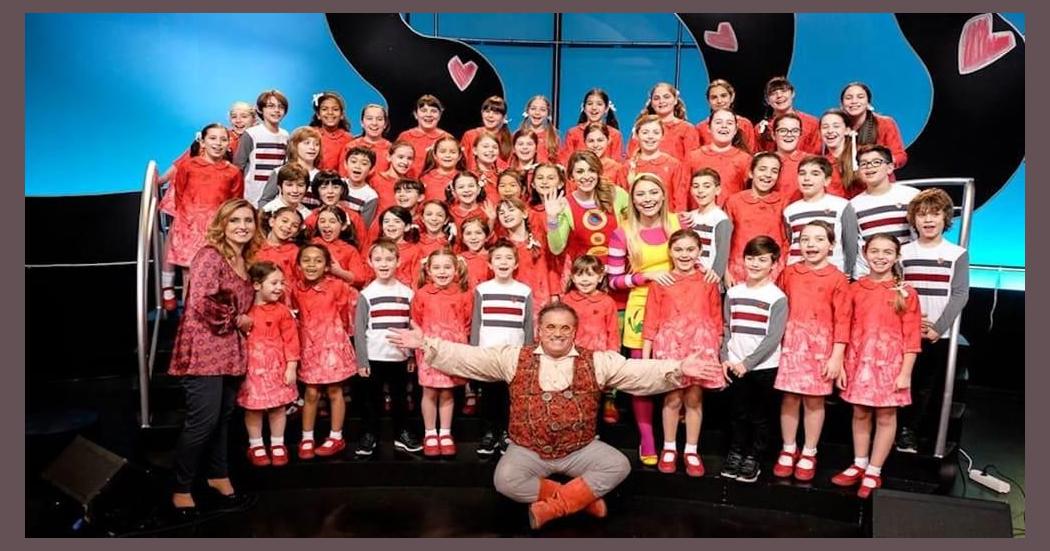 Zecchino D'oro
Zecchino D'oro
Zecchino d'Oro: The Melody of Childhood
Zecchino d'Oro, the beloved Italian children's music festival, has left an indelible mark on the hearts of countless youngsters since its inception in 1959. At its helm is the eponymous band, whose enchanting melodies have become synonymous with the festival.
The Band's Humble Beginnings
Zecchino d'Oro was the brainchild of Cino Tortorella, who sought to create a platform where children could showcase their talents. The band, initially composed of local musicians and singers, provided the musical accompaniment for the festival's young performers.
Challenges and Controversies
Over the years, Zecchino d'Oro has faced its share of challenges. In 1964, the song "Popoff" sparked controversy due to its unusual lyrics and catchy tune. The band's decision to perform a cover of the Beatles' "Yellow Submarine" in 1967 also drew criticism from traditionalists.
An Evolving Sound
Despite these setbacks, Zecchino d'Oro continued to evolve its musical style. The band embraced contemporary trends while maintaining its core mission of providing entertaining and educational music for children. In recent years, they have incorporated elements of pop, rock, and even electronic music into their repertoire.
The Band's Legacy
Zecchino d'Oro boasts an impressive discography with over 1,000 songs. Among their most enduring hits are the timeless "Il coccodrillo come fa?" (How does the crocodile do it?), the heartwarming "Quarantaquattro gatti" (Forty-four cats), and the educational "Il valzer del moscerino" (The mosquito's waltz).
Members and Collaborations
The band's lineup has changed over time, but its core members have remained dedicated to the festival's success. Notable contributors include:
* Gian Marco Gualandi: Composer and conductor
* Maria Chiara Giannetta: Vocalist
* Toto Cutugno: Guest performer
Zecchino d'Oro has also collaborated with renowned artists such as Luciano Pavarotti, Andrea Bocelli, and Claudio Baglioni. These partnerships have further elevated the band's profile and introduced their music to a wider audience.
Conclusion
Zecchino d'Oro, with its enchanting melodies and enduring legacy, has become an integral part of Italian childhood. The band's ability to adapt and evolve over the decades is a testament to their unwavering commitment to bringing joy and inspiration to young listeners.
Zecchino d'Oro, the beloved Italian children's music festival, has left an indelible mark on the hearts of countless youngsters since its inception in 1959. At its helm is the eponymous band, whose enchanting melodies have become synonymous with the festival.
The Band's Humble Beginnings
Zecchino d'Oro was the brainchild of Cino Tortorella, who sought to create a platform where children could showcase their talents. The band, initially composed of local musicians and singers, provided the musical accompaniment for the festival's young performers.
Challenges and Controversies
Over the years, Zecchino d'Oro has faced its share of challenges. In 1964, the song "Popoff" sparked controversy due to its unusual lyrics and catchy tune. The band's decision to perform a cover of the Beatles' "Yellow Submarine" in 1967 also drew criticism from traditionalists.
An Evolving Sound
Despite these setbacks, Zecchino d'Oro continued to evolve its musical style. The band embraced contemporary trends while maintaining its core mission of providing entertaining and educational music for children. In recent years, they have incorporated elements of pop, rock, and even electronic music into their repertoire.
The Band's Legacy
Zecchino d'Oro boasts an impressive discography with over 1,000 songs. Among their most enduring hits are the timeless "Il coccodrillo come fa?" (How does the crocodile do it?), the heartwarming "Quarantaquattro gatti" (Forty-four cats), and the educational "Il valzer del moscerino" (The mosquito's waltz).
Members and Collaborations
The band's lineup has changed over time, but its core members have remained dedicated to the festival's success. Notable contributors include:
* Gian Marco Gualandi: Composer and conductor
* Maria Chiara Giannetta: Vocalist
* Toto Cutugno: Guest performer
Zecchino d'Oro has also collaborated with renowned artists such as Luciano Pavarotti, Andrea Bocelli, and Claudio Baglioni. These partnerships have further elevated the band's profile and introduced their music to a wider audience.
Conclusion
Zecchino d'Oro, with its enchanting melodies and enduring legacy, has become an integral part of Italian childhood. The band's ability to adapt and evolve over the decades is a testament to their unwavering commitment to bringing joy and inspiration to young listeners.